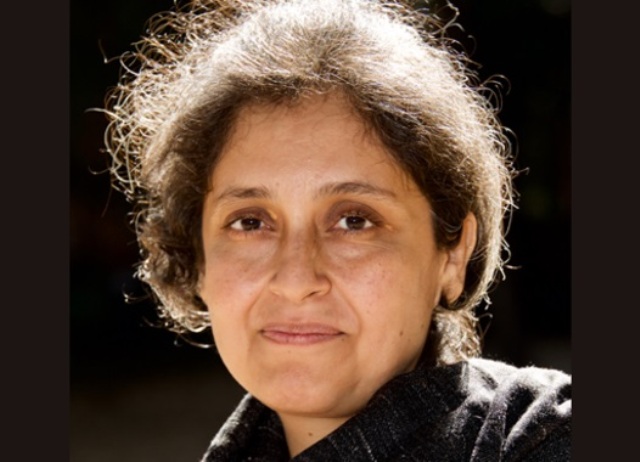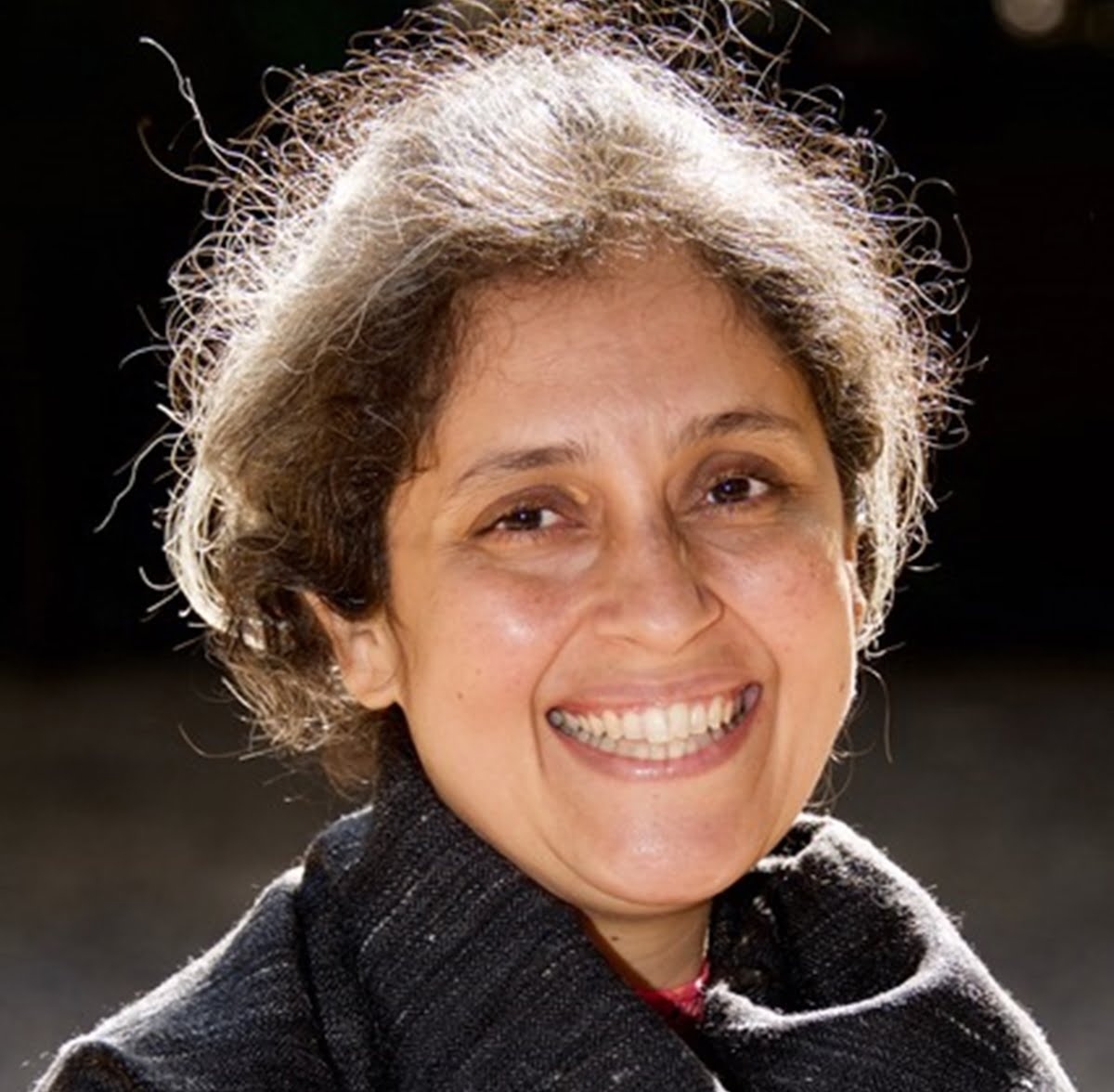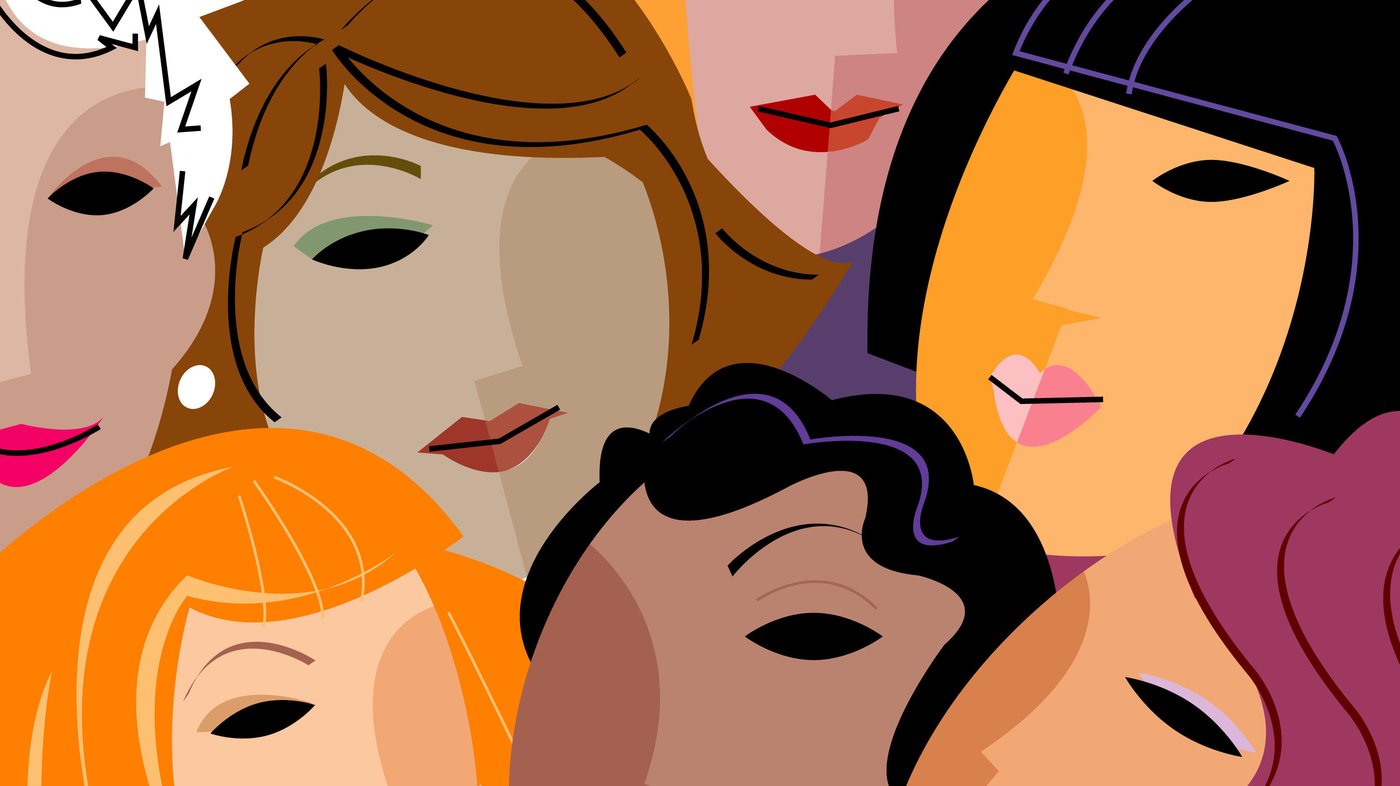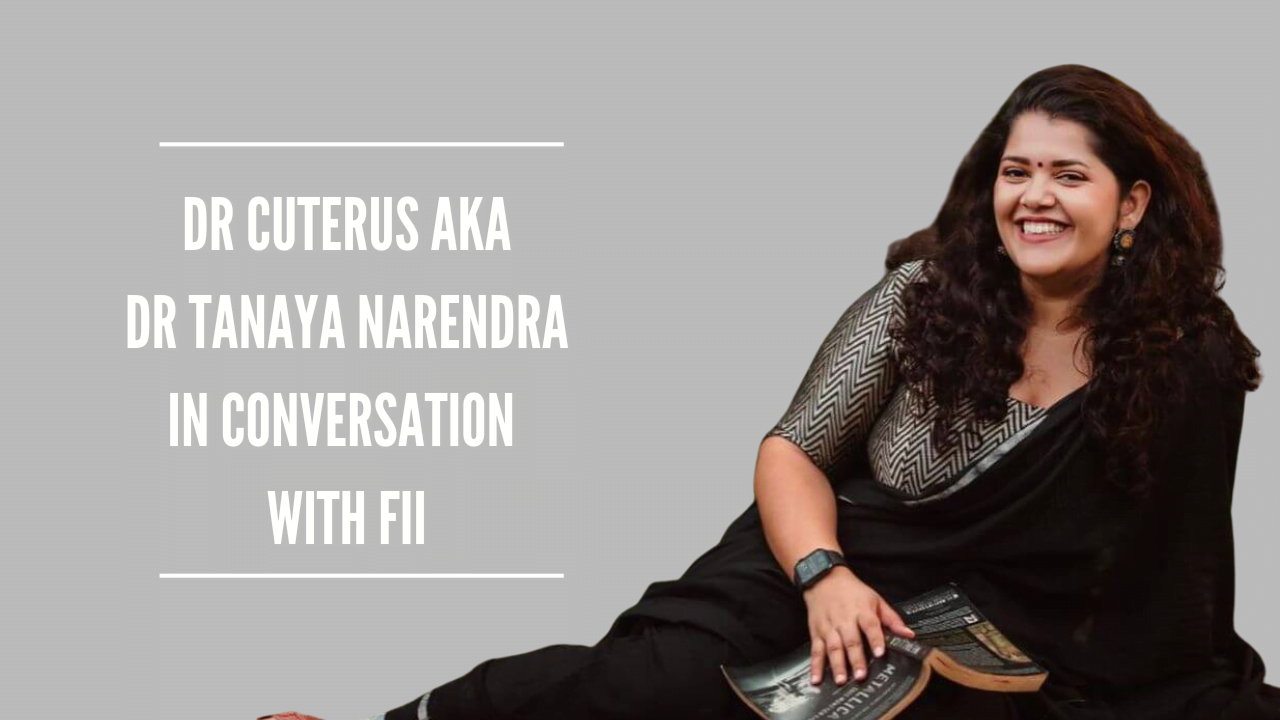This interview with Dr Reetika Khera is an effort by the Rethinking Economics India Network to highlight and showcase the work of women scholars, a section of the research community who have been and are discriminated against and underrepresented in economics academia.
Dr Reetika Khera is an Associate Professor of Economics at the Indian Institute of Technology (Delhi). With an MPhil in Development Studies from University of Sussex, and a Doctorate in Economics from Delhi School of Economics, Dr Khera has over 40 articles and 6 books that have either been independently written or co-authored. Her research interests lie in social policy in India which include health and nutrition, education, social protection, employment, poverty, inequality, and the impact of digital technologies in welfare. Dr Khera’s research interests provide a unique and amalgamated insight into India’s socioeconomic struggles and their solutions from multi-disciplinary perspectives, shedding light on the inadequacies of the current structures, and how best they can be addressed.
In this interview, we explored the nuances of inclusivity in our country’s welfare schemes, the difference between research undertaken in the global north and south, practical concerns regarding the Aadhar Card, and the DUET Scheme proposed by Jean Drèze, amongst other questions concerning welfare infrastructures in our country.

Q: Do you think there is a bias against research done in the global South compared to the North? How does this discrimination play out and how do we break away from this stranglehold?
A: In economics, the metrics that determine ‘top journals,’ or what counts as ‘rigorous’ research is decided by people at institutions that are not representative of a wide variety of views. For instance, in a recent piece in Project Syndicate, Kapur and Subramanian have initiated a welcome discussion, bemoaning the lack of representation “in the field” [of development economists]. But they write as if development economists exist (in fact, must exist) only in the “global North”. In that view, representation means that economists from the “global South” must be accommodated in the journals and other institutions of the North.
It does not take into account that researchers in the South might also have a view on what counts as good research. For many years, the Economic and Political Weekly has had interesting, policy relevant, and lively debates on issues related to India, but many of the development economists based in the North do not read, let alone cite the work published in such journals. I’m mentioning citations because it is another example of how the North imposes norms and standards: citations are now a shortcut measure of whether research is ‘rigorous’ and impact.
Also read: In Conversation With Chetna Gala Sinha: Founder Of Mann Deshi Foundation
Q: Can you shed some light on the experiences from your field activities in India as a female researcher?
A: My research involves a lot of fieldwork, in many unfamiliar parts of the country, sometimes in areas where I don’t speak the language. My first experiences are from around 2002-3 in rural Rajasthan, where I did my PhD fieldwork. I was almost always traveling alone and there are some touching moments from those travels. For example, during a long inter-city bus journey, a male co-passenger came up to me during a break in journey to say he would be happy to watch over my belongings in case I wanted to use the loo at the bus stand.
In tense situations (for example, if we uncover corrupt practices during our fieldwork), it has always helped to be a woman because that has almost always diffused the tension. On many issues, being a woman or having large number of women in our teams, has meant we learn more, especially in northern states, where it’s not always straightforward to interview women.
Obviously there have also been situations when men (or young boys) have behaved badly with me. For instance, finding a private space to bathe has not always been a success. But I believe because I’m privileged in such obvious ways, it shielded me from unpleasantness most of the time.
I’ve got many questions about my personal status: Married or not, mother or not, what caste, etc. In some contexts, I find such questions from strangers offensive; but in other contexts, they’ve been helpful in breaking the ice (e.g., I often get “gosh her hair is ‘cooked’, and she’s not yet married”).
Q: As a contributor to the discourse around and about welfare activities and schemes in India, how can the same be bettered, when looked at from the viewpoints of equity, diversity of needs of the population, and inclusivity of welfare schemes?
A: Richard Titmuss famously said, “Benefits for the poor end up being poor benefits”. He made a strong argument in favour of universal entitlements. He argued against seeing welfare as a ‘burden’ on society, and instead viewing welfare as partial compensation for the disservice caused by society and as an investment for future gain. I’m paraphrasing, of course.
Such a reframing of the ‘discourse’, as you call it, is an important step towards building a more robust welfare system in India. Welfare programmes are routinely referred to as ‘populist’ ‘doles’, ‘freebies’, or ‘handouts’.

The NREGA is routinely labelled as a “digging holes” programme that is not efficient. Yet, as poet Akhil Katyal pointed out in his poem, it is by digging holes that you can plant a tree, lay the foundation of a building, construct a well, and so on. Equity-enhancing measures can enhance efficiency too.
If we pay greater attention to the framing of public debates, and question that, it might help create consensus to give equity as much weight as efficiency.
Richard Titmuss argued against seeing welfare as a ‘burden’ on society, and instead viewing welfare as partial compensation for the disservice caused by society and as an investment for future gain.
Such a reframing of the ‘discourse’ is an important step towards building a more robust welfare system in India. Welfare programmes are routinely referred to as ‘populist’ ‘doles’, ‘freebies’, or ‘handouts’.
Q: How has the perception of these schemes changed amongst the intended recipients of said schemes, especially for the most marginalised and ostracised sections of society?
A: We don’t generally ask explicit questions about perceptions of welfare programmes. Even though it is rarely described in those words, one does get the sense that programmes are a ‘lifeline’. I’m thinking of the PDS (public distribution system that provides subsidized grain and in some states, pulses and oil too), NREGA (which provides employment in the local area), or social security pensions for the elderly, single women and for persons with disabilities (ranging from INR 200 to INR 1500 per month).
One of my most vivid memories from my PhD fieldwork in 2002-3 is from Bikaner where an old woman was blessing the then chief minister of Rajasthan for ‘saving their lives’ because of the food-for-work relief employment that had been scaled up because of the then ongoing drought. That experience with relief employment became the basis for the NREGA in 2005.
A few years ago, a woman in rural Odisha referred to her PDS ration card as her land patta. In 2011, we were studying whether people would prefer cash transfers instead of subsidized grain from the PDS in Chhattisgarh, Odisha and other states where the PDS functioned well. Upon asking this question, many of our respondents became palpably anxious, as if the ground beneath them had shifted. In one village, they kept following our survey team to ensure that their answer in favour of food had been correctly recorded.
Q: India currently ranks 102 out of 117 countries in the Global Hunger Index. India faces malnutrition worse than Sub Saharan Africa. How do you think this situation can be improved, given the current welfare provision infrastructure present in the country?
A: The first step is to recognize that there is a serious problem, a nutritional emergency. We still find that there are attempts to delude ourselves into believing that it is going to get alright without conscious policy efforts.
The second important thing is to increase resource availability for these interventions. Currently, their budgets are being cut not only in real terms, but sometimes in nominal terms also.
Third, it is important to understand that it is not reasonable to expect that these expenditures will go down over a period of time. Often public commentators would ask “How long will NREGA/PDS/ICDS continue?”, as if their continued implementation is an indicator of their failure. All over the world, in rich and poor countries alike, welfare spending is recognised as necessary. As countries get richer, their welfare spending as a proportion of GDP tends to rise, because they can afford more.
Often public commentators would ask “How long will NREGA/PDS/ICDS continue?”, as if their continued implementation is an indicator of their failure. All over the world, in rich and poor countries alike, welfare spending is recognised as necessary. As countries get richer, their welfare spending as a proportion of GDP tends to rise, because they can afford more.
Q: Is the concept of identification necessary to be recognised by the state, when looked at from the perspective of Aadhaar?
A: Here are two ways to think about identification and the state: philosophically and in terms of pragmatic concerns. As far as the first is concerned, identification and IDs are linked to citizenship and personhood. If we believe in human rights for all, then we shouldn’t need these IDs which mainly serve to decide whether you should get any particular government service or not.
But there are practical concerns related to implementation where an ID might serve a useful purpose (e.g., who got what, when, and how much). IDs, even digital IDs, for specific schemes have served to implement programmes better. For example, ration cards in Tamil Nadu take the form of smart cards. Some demographic details are printed on the card and others that can be saved on a microchip are stored on the card. Such a system allows the state to reap the benefits of digital technology, while avoiding all the vulnerabilities that come with an over-centralized and biometric ID such as Aadhaar.

Q: What are your thoughts on the DUET (Decentralised Urban Employment and Training) scheme proposed by Jean Drèze for the employment crisis in the urban informal sector?
A: I was excited to read about it. I think the ‘revised’ version where it is recast as a scheme for women in urban areas is also a great idea.
The range of works that can be undertaken is also very exciting. On my way home recently from IIT Delhi, near the IIT Delhi flyover, I found a small group of young people painting a large dumpster. If you walk through Lodhi colony, the art work on the walls makes it seem like you’re in an outdoor museum. Parks, footpaths, school buildings: all of them would benefit from maintenance work. Many years ago, I visited some government schools in Delhi (so my information is dated), but the buildings were in bad shape – broken windows, lack of furniture or damaged furniture, cobwebs, peeling paint, etc. I’m sure things have improved, yet upkeep is important, and there must be many where things need fixing.

The DUET could be used for solid waste management, segregation, etc., in a way that allows greater recycling and also reduction of these mountains of garbage that are piling up in our cities (Pirana in Ahmedabad, Ghazipur in Delhi). In the past year, I’ve been segregating waste at source to make compost and am a huge fan. If such activities can be organised to generate employment through the placement agencies that are in the DUET proposal – it seems like a win-win solution. More beautiful cities, greater employment and income for the poor, and environmental benefits. It is definitely worth trying out in some cities/states, and also worth studying it where it is already underway (Himachal Pradesh, Odisha, Kerala and Jharkhand – among the ones that I’m aware of).
The DUET could be used for solid waste management, segregation, etc., in a way that allows greater recycling and also reduction of these mountains of garbage that are piling up in our cities. If such activities can be organised to generate employment through the placement agencies that are in the DUET proposal – it seems like a win-win solution. More beautiful cities, greater employment and income for the poor, and environmental benefits.
Q: What would your advice be to students pursuing or willing to pursue a PhD?
A: That’s not my strength. I can only think of random things like: write simply, avoid jargon. Recently, someone we have worked with remarked (I think to express appreciation) that “When I did my PhD, field-based, primary data collection type of work in development economics must have been less fashionable than it is today.” Perhaps he had in mind how RCTs are supposed to have “brought back” the coolness quotient to such work. And I had to shamefully admit that when I embarked on my PhD I had no clue as to what was regarded as cool in the world of economics; it was not something I factored in at all in my decision.
I had a great curiosity about what rural India was like, and only knew that if I did a PhD then it should involve fieldwork. In a sense, I let my research question emerge from the bottom-up (from field studies) rather than using a top-down approach (from the published literature). I still find this part very exciting because that’s when I learnt a lot.
Also read: Interview With Dr Manjima Bhattacharjya, The Author Of Intimate City
The Rethinking Economics India Network is a National Network of the global Rethinking Economics movement, and looks to organise locally against a background of social movements, of which we are one part. In order to build a movement for an economics that is pluralist, REIN aims to bring together an ecosystem of stakeholders in the space – individuals, universities, civil society, and the private sector, in order to scale collaborative efforts for teaching, learning, and discussion. The network looks to impact all those who participate in a society fundamentally shaped by economic ideas – not just the academic economist, but rather the public at large.
The link to their website is here and their social media handles are: Facebook, Twitter, LinkedIn and Instagram.
Featured image source: YouTube




